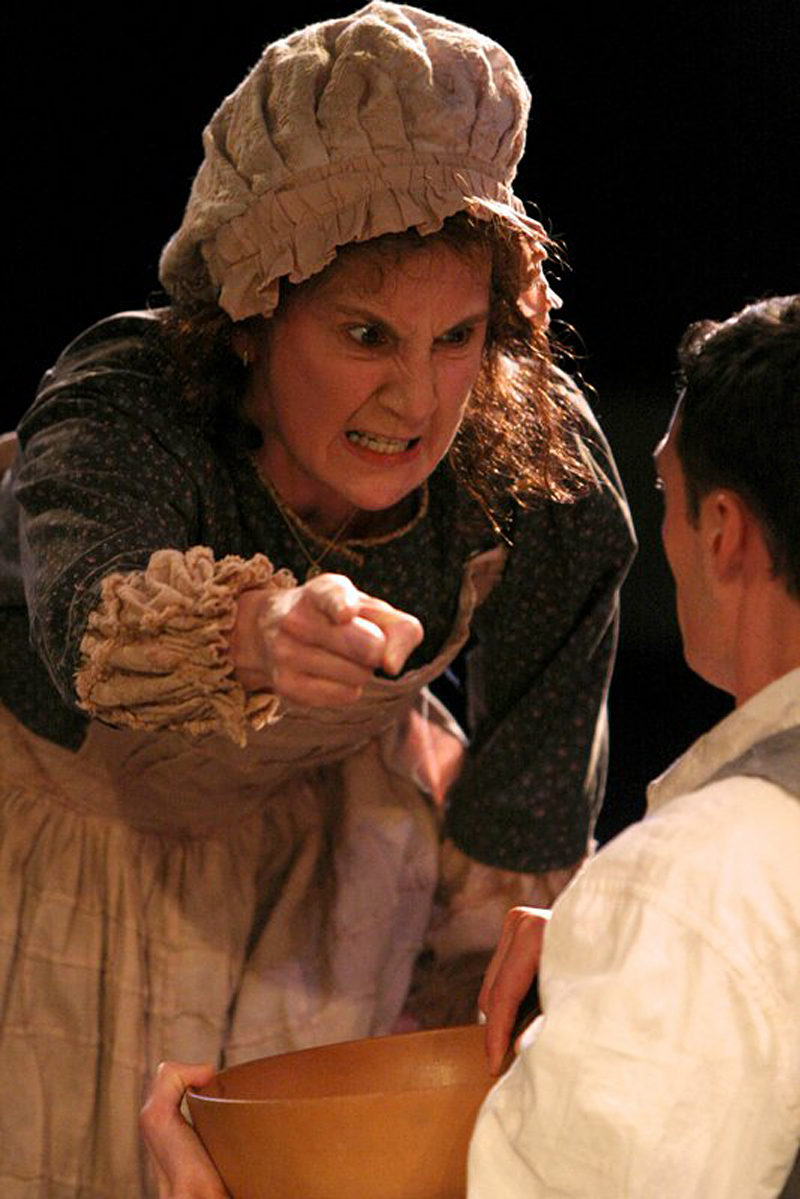Decades before Freud, Charles Dickens had a keen psychological insight: A wounded psyche will seek relief by inflicting pain on beings that resemble its own vulnerable self. This poignant truth lends power and pathos to the novelist’s most iconic work, Great Expectations, and informs the most interesting of Kevin McKeon’s directorial choices in Book-It’s lengthy but ultimately satisfying production.
Who can ever forget the petrified, cobweb-covered wedding cake at the core of Dickens’ bildungsroman about poor orphan Pip (Lee Osorio) and his seduction by the beautiful Estella (Sylvie Davidson), the WMD created by the emotionally pickled Miss Havisham (Jane Jones) in retribution for her own abandonment at the altar many years earlier? Set designer Andrea Bryn Bush supersizes the cobwebs and pushes them up to the rafters, leaving a hauntingly empty stage. True to the 1861 book, this adaptation chooses as its main conflict the ambitious Pip’s betrayal of his lower-class origins—including his rotten sister’s kindly husband Joe (a lovably bear-like Mike Dooly) and his amiable first tutor Biddy (also played by Davidson). Davidson’s diminutive Estella is as precise and dangerous as a submarine, a fine foil to Osorio’s clumsy, humiliated Pip. Jones’ Miss Havisham, a bit banal at first, emits a marvelously malevolent glow once her web ensnares its prey. She’s as much an arrested young bride as a vindictive old prune; a few times, her voice actually seems to split in half to reflect this, screeching and growling simultaneously.
Performances aside, the sheer size of Dickens’ opus is a challenge to adapt in two-and-a-half hours. Adapter Lucinda Stroud’s first act is bogged down with scene setting, introductions, and exposition; her second act picks up speed, despite road bumps of backstory and coincidence. More could’ve been pruned, like the flimsy subplot of villainous Orlick. Yet this Great Expectations draws its greatest power through repetition: As Pip is repeatedly drawn back to the decrepit Satis House, the locus of his humiliation, it becomes irrefutable that his cobwebbed demons lie not in the building, but within him.








